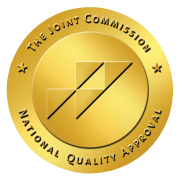Building Self-Esteem in Mental Health
February is International Boost your Self-Esteem Month
What Is Self-Esteem
 How we view ourselves in terms of our own subjective sense of personal worth or value is typically referred to as self-esteem, self-worth, self-regard, or self-respect. It’s basically the way we perceive ourselves and our own value, regardless of the current circumstances in our lives. Our self-esteem can be defined by our own feelings of security, our sense of self-confidence, a sense of belonging or our feelings of being capable and confident. It is many times the foundation of our identity. Building self-esteem is valuable for anyone looking for mental health.
How we view ourselves in terms of our own subjective sense of personal worth or value is typically referred to as self-esteem, self-worth, self-regard, or self-respect. It’s basically the way we perceive ourselves and our own value, regardless of the current circumstances in our lives. Our self-esteem can be defined by our own feelings of security, our sense of self-confidence, a sense of belonging or our feelings of being capable and confident. It is many times the foundation of our identity. Building self-esteem is valuable for anyone looking for mental health.
Poor self-esteem can come from a variety of places. Some of us are born with it as part of our genetic make-up. For others, they can feel “less than” due to their socioeconomic status, physical or mental disabilities; or perhaps low self-esteem is due to a mental health struggle. Sadly, children raised in a negative environment where they didn’t feel valued, or perhaps they were abused or neglected, may grow up with feelings of worthlessness, and consequently, continually struggle with self-esteem as an adult.
The Poor Self-esteem Bias
Regardless of what the source of self-worth struggles are, low self-esteem is a biased view that reflects a harsh and unfair judgment about ourselves. We then act according to those self-taught beliefs. For example, you may know somebody who is chronically indecisive, never seeming to trust their own decisions or perhaps easily swayed by the opinion of others.
For others low self-esteem manifests as negative self-talk or going to extreme lengths to please others. If you have low confidence or know of someone who lacks self-confidence they also tend to suffer from low self-esteem. All in all, it can result in feeling a lack of control in many or all aspects of life without the ability to create the change needed to feel more confident and in charge of their own destiny.
Social Media and Self-Esteem
Increasingly, the role of social media is being questioned in the role of individuals’ self-esteem, especially when it comes to young adults. While both men and women of any age can suffer from low self-esteem, social media plays a heightened role particularly in young girls questioning their own self-worth.
Social media creates a platform where it becomes easy to compare yourself to someone else. Individuals post “versions of themselves” which are typically not accurate of their day-to-day lives. This can prompt comparisons that foster body image issues and create self-esteem gaps and questions around a person’s looks, their lifestyle and their quality of life – and whether they are “good enough.” It becomes easy to see how constantly viewing the joy of others through a filter of their “perfect life” as portrayed on social media can create insecurities.
Beauty Filters and Mental Health
A 2021 survey of 200 teens ages 13 to 21 revealed that young people who use beauty filters regularly in their posts on platforms like Snapchat and Instagram are more likely to have a desire to want to get cosmetic surgery and/or to alter their skin color. The survey also revealed a correlation between the amount of time a teen spends on social media and their dissatisfaction with their appearance. As one would expect, the more time spent on social media, the higher their feelings of dissatisfaction with themselves. Social media is setting a disingenuous and unrealistic bar for what people feel they should look like, how they should act, and what their lives should look like.
“It makes very intuitive sense that when you don’t have a strong sense of self or don’t have strong attachments or modeling behaviors from family that it can sometimes lead to developing poor self-esteem and even poor body image, which translates to anxiety, depression, and isolation. It also contributes to developing traumatic attachment, trauma, and codependency. Poor self-esteem can be a symptom of underlying mental health issues.”
Eric Chaghouri, MD
Psychiatrist/Medical Director,
Lido Wellness Center
The Risks of Low Self Esteem
Leading a healthy, full life can be difficult when you suffer from low self-esteem. It affects your ability to connect with others and have a meaningful relationship with a significant other. There is a possibility of becoming codependent. It can contribute to loneliness and propagate isolation. Social anxiety can result, which may create stress around interactions with others – even casual conversation can be affected, wondering if you are saying the right things or worrying that you are dull or don’t have anything of value to contribute to the conversation. Individuals with low self-esteem can also have trouble setting boundaries with others and allow themselves to be taken advantage of or find themselves in uncomfortable, or even sometimes, dangerous situations.
From a total health perspective, low self-esteem contributes to high levels of stress and can lead to unhealthy coping activities if individuals turn to substances such as alcohol or drugs. Having poor self-esteem can manifest into serious mental health disorders such as anxiety and depression, and even suicidal ideation.
Several studies have been done that connect the feeling of positive self-esteem with the ability to experience more joy and optimism daily. There’s also evidence that those who enter treatment regimens for treating disease with positive feelings of high self esteem get through treatment faster and have better outcomes, and even have a stronger immune system.
Tips for Improving your Self-Esteem
One of the first things to remember for anyone struggling with their sense of self-worth is to reject that your negative self-talk is true. Believing the inaccuracies, we tell ourselves plunges us further into a hole where we risk sinking so far that we can no longer see the truth about ourselves. Instead, we believe the lies through the poor self-esteem filter that we have created. Here are a few ideas on how to consciously tackle feelings of low self-esteem:
- Challenge some of the automatic thoughts that you have about yourself. Don’t just accept what comes into your head about yourself as true.
- Don’t compare yourself to others.
- Remember your achievements – small or large. Keep a list handy to refer to.
- Talk to yourself as you would talk to a friend. You wouldn’t constantly criticize a friend or find fault with everything they do. Give yourself the same grace. Learn how to practice self-compassion.
- Pay attention to good health habits – engage in regular exercise and eat healthy.
- Select those around you carefully – stay away from individuals who are constantly critical and who aren’t positive.
- Seek professional help and explore the source of your self-esteem issues to address it at its core.
Building Self-Esteem and the Lido Model of Care
At Lido Wellness, our mental health approach is driven by a Person-Centered Treatment Philosophy that is based on respecting and understanding each individuals’ unique life experiences. Self-esteem struggles can develop as a result of those life experiences. Low self-esteem is commonly found in people with trauma and stress related disorders, anxiety, depression, substance use disorders and eating disorders. It’s no wonder that a driving force behind development of these types of mental illnesses can be low self-esteem.
In recent outcome surveys conducted by Lido Wellness Center, individuals who completed a patient health questionnaire noted improvements to many areas of their lives, including ability to notice or regulate emotions, ability to tolerate distressing experiences/emotions, and readiness to transition back to a regular routine of their lives, including work, school, etc. Many noted feeling listened to and heard during their time at Lido Wellness Center, which is important in being open to treatment and plays a vital role in the success of individuals seeking care.
At Lido Wellness Center, our Person-Centered Treatment Philosophy goes hand in hand with helping individuals build self-esteem. This is vital to being open to receiving mental health treatment that eventually helps individuals:
- Feel valued
- Believe they are cared for
- Increased confidence in their abilities to improve their lives and live their best life
- Enhance motivation to continue to improve
- Build better health and resilience for an improved quality of life
For many individuals, being heard translates to feeling respected and important – which are crucial components to self-worth. The feeling of being heard also adds to the idea that our experiences are legitimate, and our concerns are real. It can also add to the feeling of empowerment and the idea that we can accomplish what we set out to do.
References
Eric Chaghouri, MD, Psychiatrist/Medical Director Lido Wellness Center
11 Signs of Low Self-Esteem (verywellmind.com)
https://www.teenvogue.com/story/social-media-filters-how-young-people-see-themselves
https://www.manageyourlifenow.com/low-self-esteem-is-dangerous-for-your-health/




